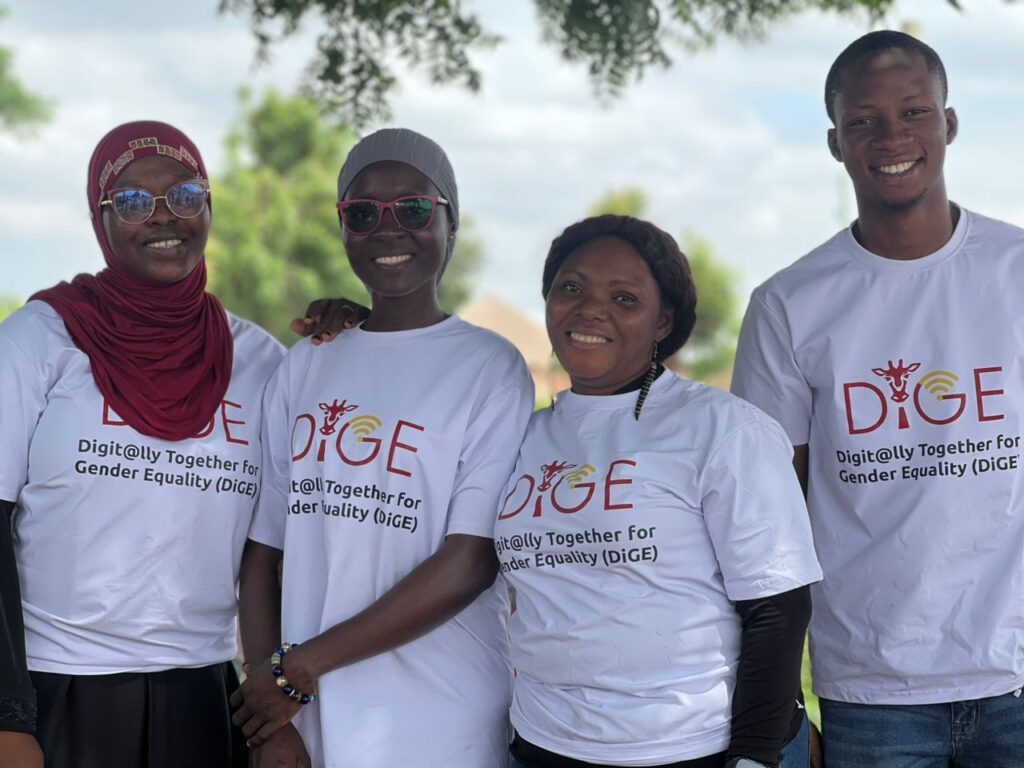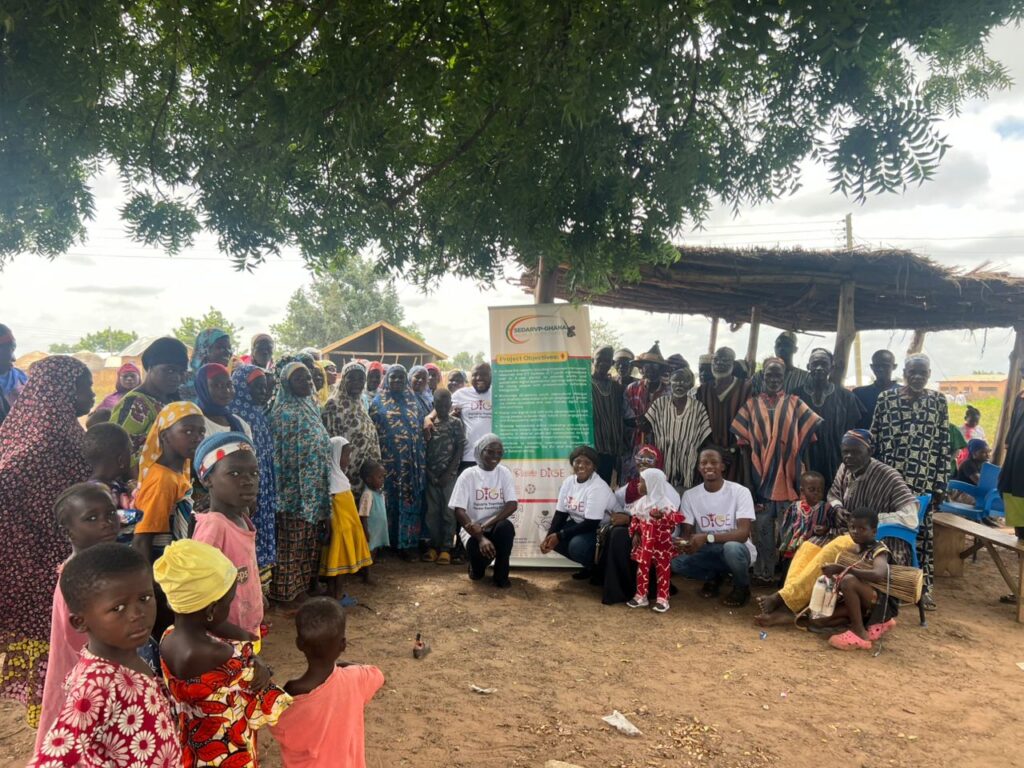
As part of its continued efforts to foster inclusive development and gender justice, SEDARVP GHANA, under the DIGE Project, successfully organized a transformative community-based activity on the 25th of July 2025 centered on the theme: “Education on Personal Growth, Societal Development, and Gender Equality.”
The event, which brought together a vibrant and diverse group of 200 participants, was a milestone in strengthening community dialogue and collective responsibility toward equity and development. Notably, the activity was attended by traditional and community leaders, women’s groups, youth representatives, and local influencers, all of whom actively engaged in the program’s interactive sessions.
Highlights of the Event
Participants explored the intersection of personal development, gender roles, and community progress, with discussions focused on:
- The importance of education and self-awareness for personal growth
- Addressing gender stereotypes and harmful cultural norms
- The critical role of women and youth in societal transformation
- Fostering gender equality as a catalyst for local development
Through storytelling, group discussions, and educational talks, the activity created a safe space for reflection, learning, and empowerment. Attendees shared personal experiences and community-specific challenges while working together to identify practical solutions and advocacy strategies.
Building Stronger Communities
One of the key outcomes of the session was the collective agreement on the need for continuous education, intergenerational dialogue, and policy engagement to dismantle gender-based barriers and promote inclusive participation in all aspects of community life.
The presence and active participation of community leaders also emphasized the role of traditional institutions in shaping and sustaining gender-equitable practices.

Moving Forward
SEDARVP GHANA remains committed to amplifying grassroots voices, promoting digital inclusion, and supporting gender equality through localized action. This community engagement marks yet another impactful milestone under the DIGITALLY TOGETHER FOR GENDER EQUALITY (DIGE) Project.
We thank all participants, volunteers, and stakeholders for making this activity a success, and we look forward to expanding our efforts across more communities in Ghana.
Project DiGE has been funded by the European Union. Views and opinions expressed are however those of the author(s) only and do not necessarily reflect those of the European Union or European Education and Culture Executive Agency. Neither the European Union nor the granting authority can be held responsible for them